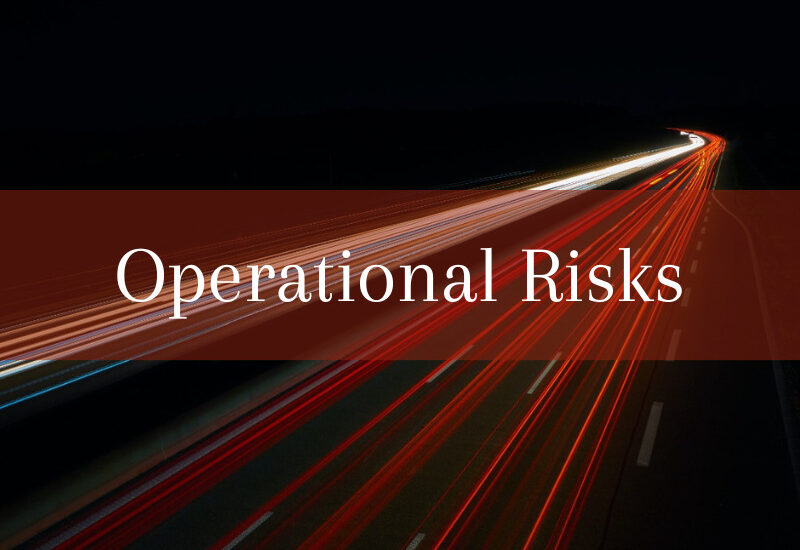- October 9, 2023
- Posted by: Limitless Consulting
- Category: Accounting

Introduction
In the complex world of finance and business, where every decision counts and every action have consequences, operational risk looks like an unsolved mystery. Unlike market and credit risks, which are more readily quantifiable and visible, operational risk overshadow, often avoiding the grasp of even the most experienced risk managers. In this article, we will deep dive into operational risk, exploring its definition, significance, and ways to manage and mitigate it.
Defining Operational Risk
As per the Principles for the Sound Management of Operational Risk of the Basel Committee on Banking Supervision, Operational Risk is defined as the risk of loss resulting from inadequate or failed internal processes, systems, people, or external events. It encompasses a vast spectrum of potential problems, ranging from technological failures and fraud to human error and natural disasters. To put it simply, operational risk is the risk of things going wrong in the day-to-day operations of a business, causing financial losses or reputational damage.
Significance of Operational Risk
Operational risk is often veiled by its other well-known counterparts, market and credit risk. However, it is no less significant and can have far-reaching consequences. Here’s why operational risk matters:
1-Financial Impact: Operational failures can lead to substantial financial losses. These losses can arise from errors in transaction processing, system breakdowns, or fraudulent activities. In some cases, such as the 2008 financial crisis, operational failures played a pivotal role in triggering larger market crises.
2-Regulatory Scrutiny: Regulatory bodies worldwide are increasingly focused on operational risk management. Non-compliance with regulations can result in hefty fines, legal actions, and a damaged corporate image.
3-Business Continuity: Operational risks can disrupt business operations, leading to downtime and potential revenue losses. This can have cascading effects on supply chains and customer relationships.
4-Reputational Damage: Operational failures can tarnish a company’s reputation, eroding trust among customers, investors, and stakeholders. A single security breach, product recall, or service outage can lead to a long-lasting negative perception of a company.
Managing and Mitigating Operational Risk
Businesses can take concrete steps to manage and mitigate it effectively:
1- Risk Assessment: Identify and assess operational risks specific to your organization. This includes understanding the potential sources of operational risk, their likelihood, and potential impact.
2- Establish Controls: Implement robust internal controls and procedures to mitigate identified risks. This may involve technology upgrades, employee training, and enhanced security measures.
3- Monitoring and Reporting: Continuously monitor operations for signs of potential risk events. Establish clear reporting mechanisms to alert management to emerging issues.
4-Scenario Analysis: Conduct scenario analysis to simulate potential operational risk events. This helps in evaluating their impact and devising strategies to mitigate them.
5- Insurance: Consider purchasing insurance coverage for certain operational risks, such as business interruption insurance or cyber insurance, to transfer some of the risk to insurers.
6-Culture and Training: Foster a culture of risk awareness and risk management throughout the organization. Invest in ongoing training and awareness programs to ensure employees understand their roles in mitigating operational risk.
7-Business Continuity Planning: Develop and regularly update business continuity and disaster recovery plans to ensure swift recovery in case of operational disruptions.
Conclusion :The importance of operational risk cannot be underestimated. By recognizing its significance and taking proactive steps to manage and mitigate it, organizations can safeguard their financial health, protect their reputation, and thrive in an increasingly complex and interconnected world. Operational risk management is not just a box to tick on a regulatory checklist; it is a vital aspect of modern business strategy and resilience.
Disclaimer: The purpose of this publication is to create awareness and has been written in general terms. This publication is not for any specific situation and therefore no opinion should be drawn from it for any particular circumstances. Limitless Consulting recommend that the reader of this publication should refer to the official documents referred in the document, seek appropriate professional advice for any particular situation and accepts no liability for any loss as a result of any information mentioned in this publication.
